9 Best Fruit Trees To Plant In Tennessee Yards And Gardens
Expert guidance on selecting and nurturing backyard orchards for ample seasonal rewards.
Best Fruit Trees To Plant in Tennessee Yards or Gardens
Are you thinking of adding some fruit trees to your Tennessee home or garden? Thanks to its mild climate, steady rainfall, and varied USDA zones, Tennessee is a wonderful place to start a backyard orchard or enjoy a handful of your own homegrown fruit each year. From apples and peaches to pawpaw and persimmon, there are many fruiting trees that will not only survive but thrive in the Volunteer State.
This comprehensive guide covers the top fruit trees for Tennessee gardeners, expert growing advice, and answers to frequently asked questions so you can savor your own backyard harvest season after season.
Contents
- Tennessee’s Climate for Fruit Trees
- Apple Trees
- Pear Trees
- Peach Trees
- Plum Trees
- Cherry Trees
- Pawpaw Trees
- Persimmon Trees
- Fig Trees
- Mulberry Trees
- Tips for Success
- Frequently Asked Questions
Tennessee’s Ideal Climate for Growing Fruit
Tennessee gardeners are fortunate to enjoy one of the best climates in the country for fruit production. The state generally falls within USDA zones 5b to 8a, with cool winters, warm summers, and sufficient rainfall spread throughout the growing season. These conditions help fruit trees avoid extremes of heat or cold, resulting in reliable harvests and healthy growth.
- Cool winters provide required chill hours for temperate fruit varieties.
- Warm summers encourage vigorous growth and fruit ripening.
- Consistent rainfall means less supplemental watering than in drier regions.
This moderate climate makes Tennessee especially fruitful for apples, pears, peaches, plums, cherries, pawpaw, persimmons, figs, and more. See below for details about which trees do best in your part of the state!
Apple Trees
Apples are a favorite fruit worldwide, and for good reason: they’re delicious, attractive, and well-suited to home gardens. Tennessee’s climate is nearly ideal for many long-season apple varieties. Not only do apples provide sweet-smelling spring blooms, but they also add variety and color come autumn harvest.
Why Grow Apples in Tennessee?
- Adaptable to USDA zones 5b–8a—right in the Tennessee range.
- Require chill hours of 500–600, which Tennessee winters typically satisfy.
- Tolerate varied soil types, as long as they drain well.
- Abundant rainfall sustains juicy fruit (especially during early establishment)
Recommended Apple Varieties for Tennessee
- Granny Smith—low chill, self-pollinating, crisp tart flavor.
- Other great varieties: Honeycrisp, Gala, Fuji, Red Delicious.
Most apple trees benefit from cross-pollination, so growing two different compatible varieties will boost yields.
Pear Trees
Pears are an excellent addition to Tennessee orchards. They are typically easier to manage than apples, often resisting pests and diseases that trouble other fruit trees. Pear blossoms also add spring beauty to the garden landscape.
- Bartlett Pear—sweet, juicy flesh, classic pear flavor.
- Kieffer Pear—hardy, crisp, and blight resistant.
- Orient Pear—vigorous grower, performs well in Tennessee climates.
Pears require cross-pollination, so plant at least two compatible varieties for optimal fruit set.
Peach Trees
Peach trees thrive in Tennessee’s warm summers, offering luscious, fragrant fruit each summer. While they require some protection from spring frost and disease (such as peach leaf curl), they reward gardeners with their incredible flavor and ornamental value.
- Elberta Peach—highly productive, classic yellow peach flavor.
- Reliance Peach—cold hardy, ideal for areas experiencing late frosts.
- Redhaven—early-maturing, sweet and juicy.
Choose varieties bred for disease resistance and consider late-blooming types to avoid frost-damaged blossoms.
Plum Trees
Plums are a versatile fruit for Tennessee orchards, valued for their juicy flavor, compact size, and attractive spring flowers. Japanese plums perform especially well in the South compared to their European cousins.
- Ozark Premier—large, sweet, and red-fleshed. Reliable in the Tennessee climate.
- Methley—early fruiting, self-pollinating, and vigorous.
- Morris—sweet, reddish flesh, disease-resistant.
Most plums benefit from cross-pollination, so check variety requirements when planting.
Cherry Trees
Tennessee gardeners can enjoy both sweet and tart (sour) cherry varieties, though tart cherries tend to be more reliable due to their higher tolerance for challenging spring weather.
| Type | Recommended Varieties | Notes |
|---|---|---|
| Tart Cherries | Montmorency, North Star | Cold hardy, productive, popular for pies and preserves |
| Sweet Cherries | Black Tartarian, Stella | Often more sensitive to frost; plant in protected locations |
Pawpaw Trees
The pawpaw is America’s largest native fruit, sometimes called the “Tennessee banana.” Pawpaws have a creamy texture and tropical flavor, making them a fascinating and tasty addition to local gardens.
- Tolerate partial shade; ideal for woodland edges.
- Prefer moist, well-drained soil and plenty of organic matter.
- Plant at least two genetically distinct pawpaws for pollination.
Persimmon Trees
Persimmons offer orange-fleshed fruit with a sweet, custardy taste when fully ripe. Both American and Asian persimmons can be grown in Tennessee, though American varieties tend to be hardier.
- American Persimmon (Diospyros virginiana)
- Asian Persimmon—grows well in protected locations.
- Some varieties are self-pollinating; others require cross-pollination.
Fig Trees
Figs are a delight in Tennessee gardens, prized for their sweetness and easy maintenance. They prefer warm, protected sites with well-drained soil. In colder parts of the state, consider growing figs against a south-facing wall or mulching for winter protection.
- Brown Turkey—cold-tolerant and productive.
- Celeste—small, sweet figs on compact trees.
Mulberry Trees
Mulberries provide an abundance of berries in late spring and early summer. They are easy to grow, quick to bear fruit, and thrive in both rural and urban garden spaces.
- Illinois Everbearing—wide USDA zone adaptability, continuous berry production.
- Red Mulberry (native species)—sweet, flavorful berries.
Tips for a Thriving Tennessee Home Orchard
To ensure your fruit trees flourish, follow these expert tips tailored for Tennessee gardeners:
- Choose disease-resistant varieties well-suited to your USDA zone.
- Site selection: Plant trees in full sun (at least 6 hours daily) with good air circulation.
- Soil preparation: Amend heavy clay with compost and ensure good drainage.
- Mulch around the base to keep roots cool and suppress weeds.
- Water deeply during establishment and dry spells—especially critical for young trees.
- Prune annually for shape, airflow, and to remove dead or crossing branches.
- Monitor for pests and diseases and use organic management methods when possible.
- Take steps to protect blooms from late frosts, such as covering with row covers on cold spring nights.
Frequently Asked Questions (FAQs)
Q: What is the easiest fruit tree to grow in Tennessee?
A: Pawpaw, pear, and fig trees are among the easiest thanks to their adaptability and lower susceptibility to pests and disease. Pears hold particular appeal for beginners due to their forgiving nature and minimal spray requirements.
Q: Can I grow citrus or tropical fruits in Tennessee?
A: Citrus and most subtropicals (such as sugar apple) need much warmer conditions year-round than Tennessee’s climate provides. However, you can grow them in containers and bring them indoors for winter if desired.
Q: How do I prevent pests and disease on my fruit trees?
A: Choose disease-resistant varieties, practice good sanitation (removing fallen fruit and leaves), and encourage beneficial insects. For organic gardens, dormancy sprays and neem oil can help control common problems.
Q: How long will it take for my fruit tree to produce harvestable fruit?
A: Most fruit trees begin to produce within 2–5 years, depending on tree type, size at planting, and growing conditions. Dwarf and semi-dwarf trees often bear fruit sooner than standard trees.
Q: What’s the best time to plant fruit trees in Tennessee?
A: The ideal time to plant is in late winter to early spring, before new growth starts. Fall planting is also possible if the ground remains workable and not waterlogged.
Additional Tips & Table of USDA Zones in Tennessee
| Region | USDA Zone | Best Fruit Trees |
|---|---|---|
| Western TN (Memphis area) | 7a–8a | Pear, Peach, Fig, Apple, Plum |
| Central TN (Nashville) | 6b–7b | Apple, Cherry, Peach, Pear, Plum, Pawpaw |
| Eastern TN (Knoxville) | 5b–7a | Apple, Pear, Cherry, Pawpaw, Persimmon |
With thoughtful planning and the right tree selection, your Tennessee garden can become a source of fresh, delicious fruit for years to come. Whether you’re just starting your orchard or expanding your edible landscape, these tried-and-true tree choices—and the above tips—will help you succeed.
References
Read full bio of Shinta



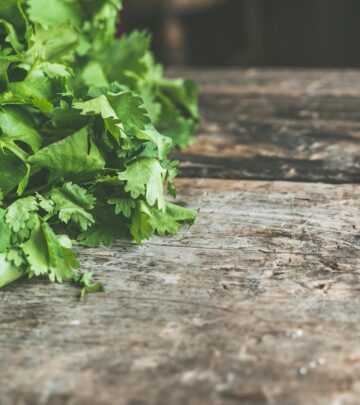

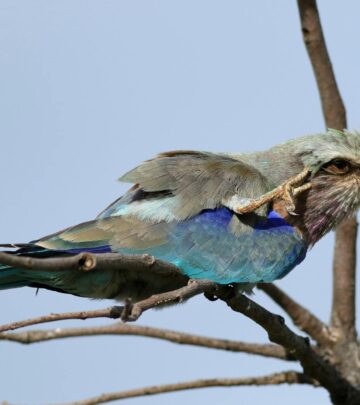

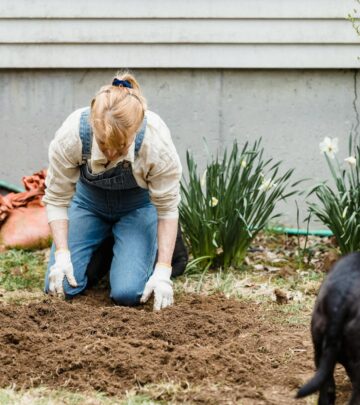
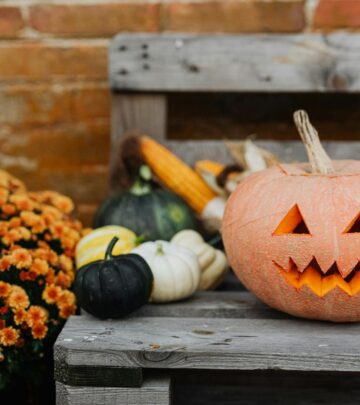
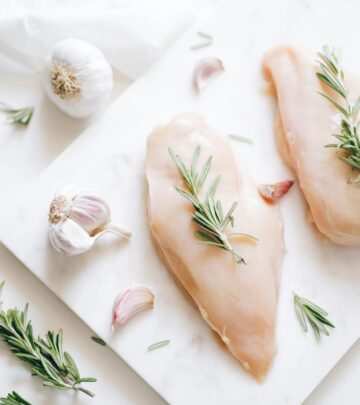



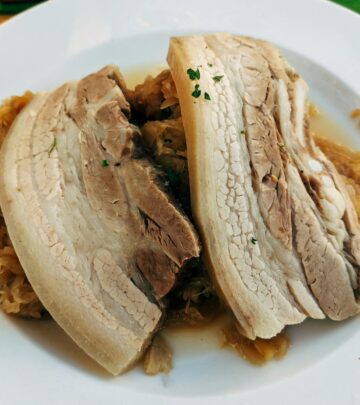


Community Experiences
Join the conversation and become a part of our empowering community! Share your stories, experiences, and insights to connect with other beauty, lifestyle, and health enthusiasts.